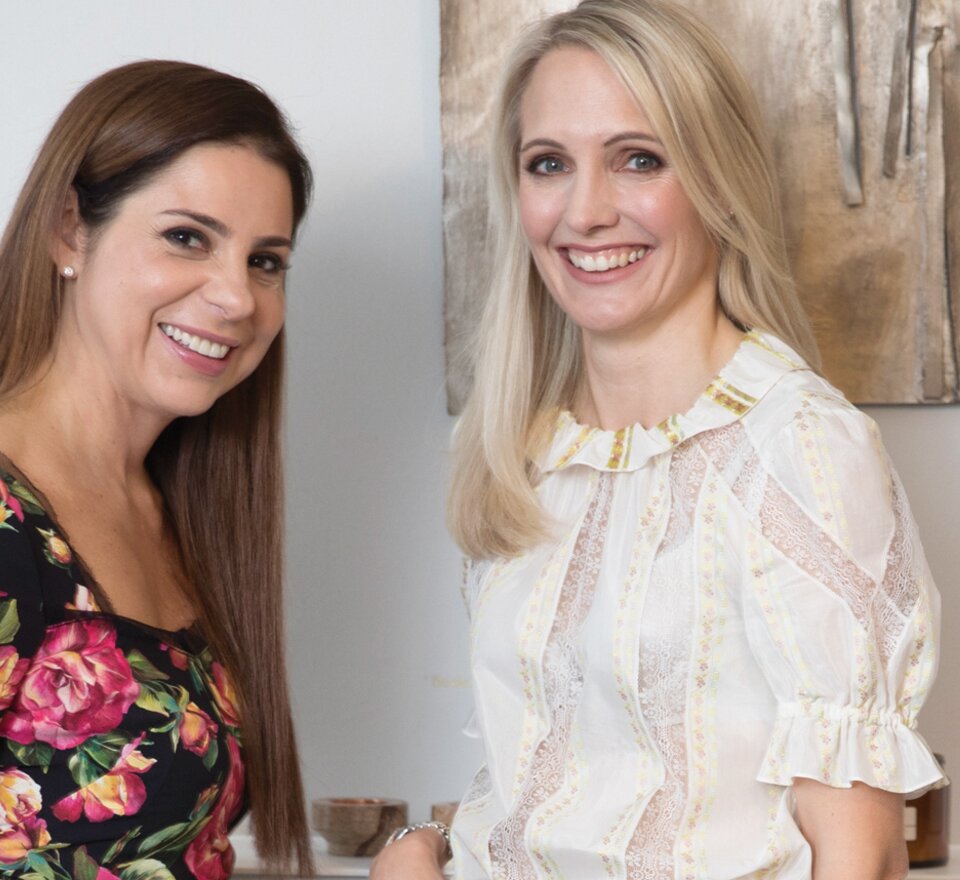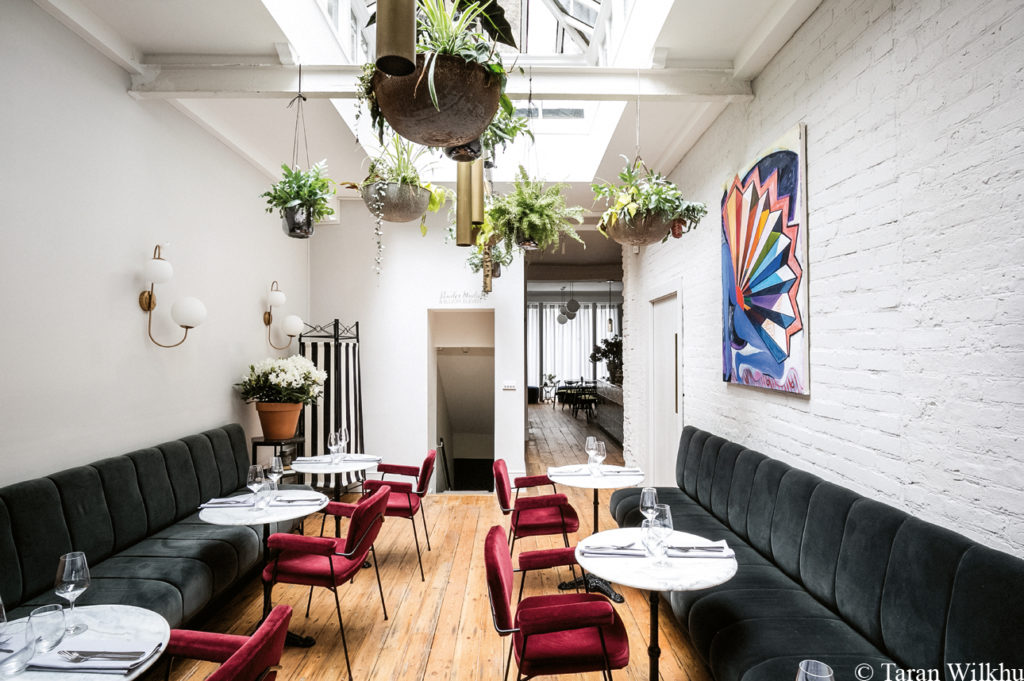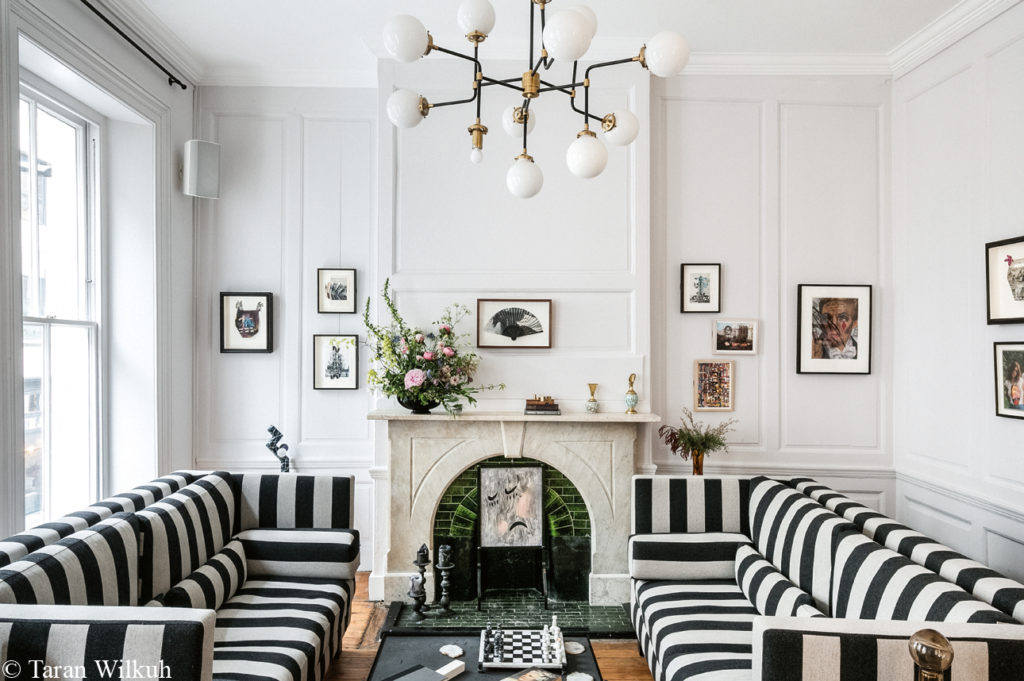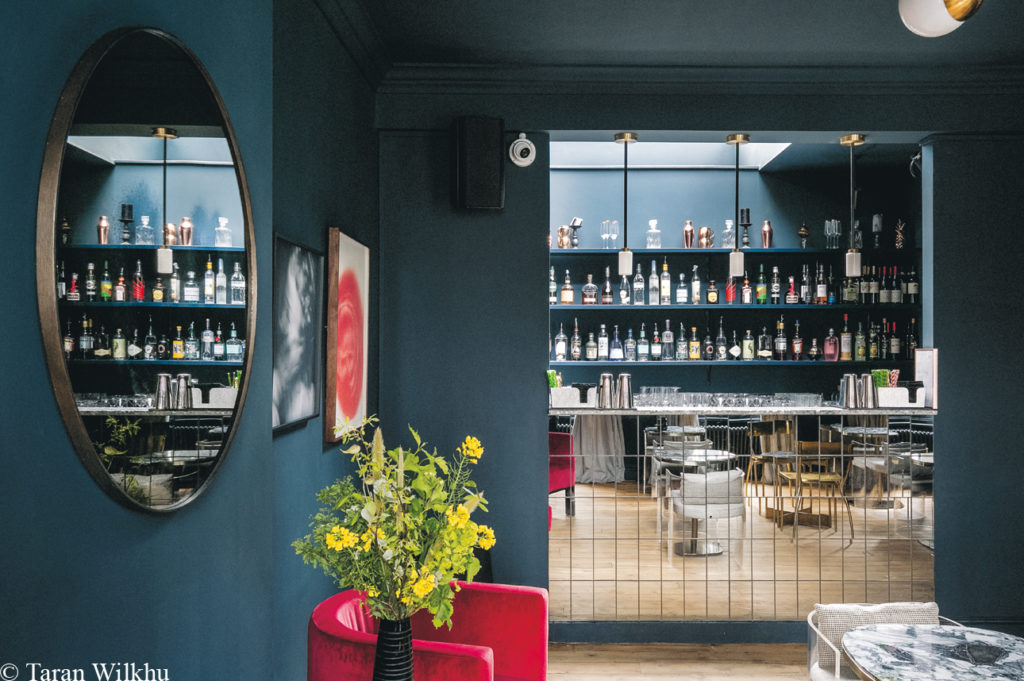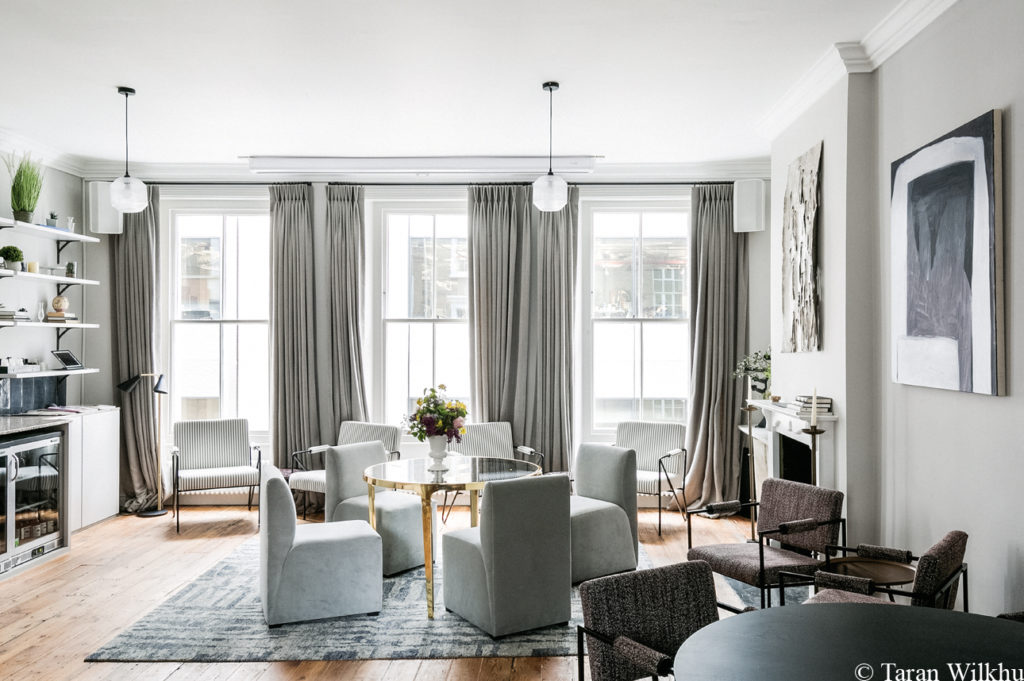“A woman must have money and a room of her own if she wants to write novels,” said writer Virginia Woolf, living in London’s district of Bloomsbury. Her words still resonate: this is precisely where Europe’s first coworking space for women will be started. A visit to The AllBright.
Right in the centre of London, just a few steps away from the British Museum and the famous West End theatres, you will find the posh artistic and boutique district of Bloomsbury. Narrow alleyways with cobblestones, crème-coloured display windows with young, British designer fashion characterise the district which has been popular for years. Behind one of the red-brick facades, however, at 11 Rathbone Place, a unique secret is concealed. This property is a place that is seldom visited by men, but usually by self-employed women from all kinds of professional backgrounds.
The AllBright, as the approx. 400-square-metre, five-floor townhouse is officially named, is Europe’s first coworking space for women. “I had the idea a few years ago, when we were talking about the professional situation of women,” says Debbie Wosskow, cofounder and managing director of The AllBright, which opened in 2016 and which she runs together with her business partner Anna Jones. “Because the statistics in Great Britain are really worrying.” According to these, there are six times fewer women in management positions than men – and this in spite of the fact that one women in every ten would prefer to work independently or lead a company. Furthermore, the number of female British company founders has stagnated for around 20 years. “This is a horrifying testimony. So we decided to put an end to these circumstances and open a coworking space where women can communicate with one another and network professionally.”
Wosskow wants to keep the exact number of currently registered members to herself and reveals only so much: “We had originally planned to attract 1,000 members within a year. But to our complete surprise, we reached this number within a single day. We couldn’t believe it!” Since then, demand for the unusual coworking space in the heart of London is so high, that a specially established committee of a total of 16 women select the future tenants out of all candidates thus, ensuring that there is always a balanced business mix.
Annual membership to The AllBright costs £750, which is around 850 euros. On top of this, there is a one-off registration fee of £300 (340 euros). This not only gives the women access to the café, lounge and a variety of different desks and conference rooms, but also allows them to participate in the services included in the membership. These include regular networking meetings, the so-called The AllBright Academy or the monthly The AllBright Club where founders and young self-employed women can meet successful businesswomen and exchange ideas with them face-to-face. Another happy aspect: each year, 23 supported coworking spaces are awarded to women who would ordinarily not be able to afford a membership.
“This coworking space is not just made of bricks and mortar, but is primarily a symbol, a metaphor for the sense of community experienced in these rooms,” says Wosskow. “We have women from all countries, all ethnicities and all professional backgrounds. And the most important thing is that we don’t work beside each other here; we really work with each other. We place the highest value on learning from each other. This also includes offering our members a very professional mentoring programme.”
But of course, they also took care of the material interior behind the bricks and mortar says Wosskow in a radio interview with the British broadcaster Monocle, which was broadcast at the beginning of October. The focus of the interior design is on classic British elegance in black and white, different shades of grey and a few powerful dashes of colour. This is accompanied by fur fabric, brass and deep, dark woods. “And of course, we also need a bit of glamour,” says Wosskow. “The design plays a big part, because it helps to shape the mission of this coworking space and makes the ideas and values we stand for visible. This is why we placed so much value on making sure The AllBright conveys a mature and grown-up impression – no pinks or pastels in sight.”
Most of the furniture you see here was designed by women. The art on the walls also comes from women. The wine is from female vintners all over the world. There is a female chef creating new menus each week, female yoga instructors who help maintain a physical balance, as well as national and international DJanes who play lounge or dance music some evenings. “We want to give women centre stage, and show the number of areas which are already actively led by women.” At the moment, things are really stressful in The AllBright. Anna Jones and Debbie Wosskow are flying to Los Angeles every two weeks to support their next project. The AllBright II will open its doors there in spring next year.
The AllBright is no unique case. At least, not in the Anglo-American world. With clubs and coworking spaces such as The Riveter in Seattle and Los Angeles, and The Wing with branches in Manhattan, Brooklyn, Washington D.C., San Francisco and West Hollywood, the amount of concentrated women power is increasing from month to month. Additional spaces in Denver, Dallas, Houston, Chicago and Minneapolis are already being planned. A few further developments, we hear from between the lines, are still being kept secret.
You have to ask: is there absolutely no hint of manliness between these feminine walls? The codes and rules of play are handled differently from space to space. And while in a few coworking spaces, men are strictly prevented from entering, they are given a warm welcome in other locations. A young man has just taken a seat on a black-and-white striped sofa, iPhone earphones in his ear, currently arranging a meeting for the coming week. The man, classic suit, colourful socks, white sneakers, is one of just a few male AllBrighters. “We don’t want to shut anyone out,” says Debbie Wosskow,”and we certainly don’t want to create an elite ivory tower here, which has nothing to do with the reality outside. We just want to create a place where some women are allowed to feel a bit better than they do elsewhere.”
Wojciech Czaja
